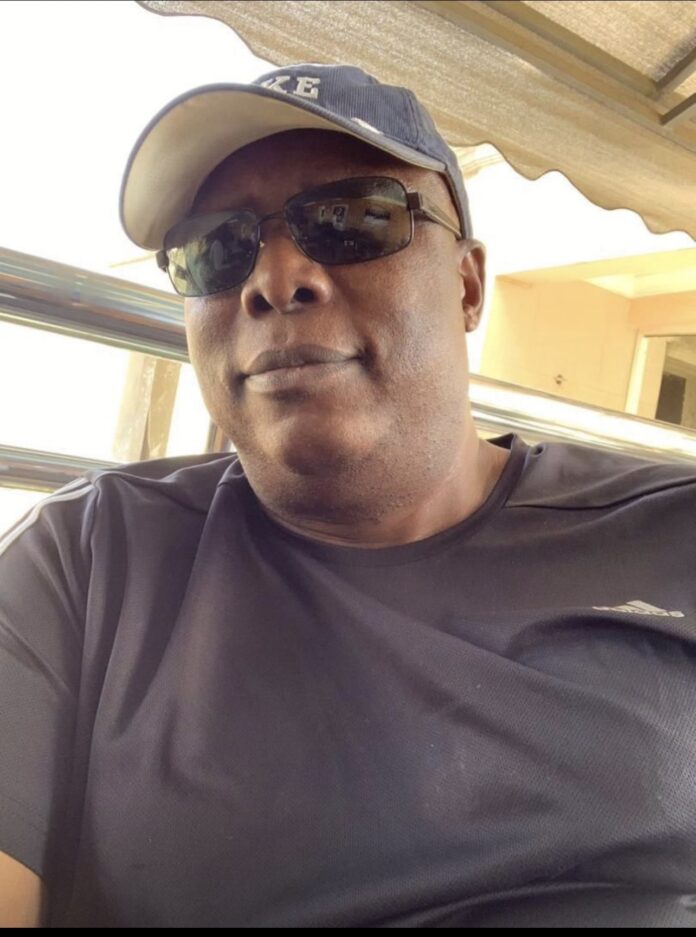In the intricate world of Nigerian politics, where decisions can shape a career or destroy it in an instant, a single misstep can often prove fatal. For Bola Ahmed Tinubu, the current President of Nigeria, a seemingly flattering ministerial offer from then-President Umaru Musa Yar’Adua could have been one such perilous mistake. But thanks to the timely intervention of his closest allies, Tinubu avoided a potentially career-ending move.
Babafemi Ojudu, former Special Adviser to the President on Political Affairs, recently revealed how he and other key figures in Tinubu’s political circle played a crucial role in persuading him to reject the role of Minister of Finance in Yar’Adua’s government—a decision that could have fundamentally altered the course of Nigerian politics.
The Ministerial Proposal
The events unfolded at a time when Tinubu was the leader of the opposition party, Action Congress (AC), and his political future was on the line. According to Ojudu, the phone call came out of the blue. Tinubu, who had already carved a strong political identity as a formidable opposition leader in Lagos State, shared the news with Ojudu: former President Yar’Adua had reached out with an offer to join his government of national unity, a role that would have placed him as the Minister of Finance.
Ojudu recalled the moment with vivid clarity, explaining that when Tinubu told him of the offer, it initially seemed like good news. “He called me one day and said, ‘Congratulations to me.’ I asked, ‘Congratulations for what?’ He then told me that former President Yar’Adua had called him to join his government as Minister of Finance.”
However, Ojudu quickly realized that accepting the position could have far-reaching consequences for Tinubu, politically and personally. The stakes were high. Nigeria’s political environment was fraught with tension, and opposition leaders often found themselves in precarious situations when they crossed certain lines.
The History Lesson: A Warning from the Past
Ojudu, who had been a close confidant of Tinubu for years, wasted no time in pointing out the potential risks. “I said, ‘You are in Action Congress. Are you not a student of history? Do you not see what happened to Bola Ige? You are digging your political grave if you accept that type of job,’” Ojudu recalled, referencing the tragic fate of the late Bola Ige, a former Minister of Justice and Attorney General under President Olusegun Obasanjo.
Ige’s political career ended abruptly when he was murdered in 2001, shortly after he became a cabinet minister in a government seen as hostile to his political base. The killing sparked suspicions that political rivals might have been involved, and it became a cautionary tale for opposition figures in Nigerian politics.
Ojudu’s warning was clear: taking a ministerial position under a government led by Yar’Adua could have meant the end of Tinubu’s political future. In the volatile political climate, ministers in rival administrations had often become targets for marginalization, intimidation, or even worse.
Allies Join the Debate
It wasn’t just Ojudu who saw the dangers of accepting the offer. Rauf Aregbesola, the former governor of Osun State and a long-time ally of Tinubu, also weighed in. Aregbesola, known for his sharp political acumen, joined the conversation and reiterated Ojudu’s concerns. “Rauf walked in and said, ‘Femi is right; that is not a job to take,’” Ojudu recalled.
Their collective argument was that accepting the ministerial role could lead to a rapid deterioration of Tinubu’s political stature. They were not just looking at the short-term benefit of being part of the federal government—they were looking at the long-term survival of Tinubu’s political career.
In fact, one businessman who was also in the room argued that the move would be beneficial to Tinubu, but Ojudu and Aregbesola disagreed. “One businessman walked in and said, ‘You guys are too radical. This thing will benefit everyone.’ But I insisted, ‘No, we are not looking for this type of benefit. We are looking for his political survival,’” Ojudu emphasized.
The discussion eventually culminated in a unanimous decision to advise Tinubu against accepting the role.
A Bold Move for Political Survival
The impact of that conversation cannot be overstated. Tinubu’s decision to reject the offer not only preserved his political future but also set him on a path that eventually led to his presidency. By turning down the ministerial position, Tinubu maintained his position as a strong and independent voice in Nigerian politics, largely avoiding the fate of many of his political counterparts who had been absorbed into the machinery of government at the cost of their autonomy.
Ojudu believes that this decision was pivotal in shaping Tinubu’s future. “He is our leader. Our dream for him is bigger than him becoming a minister in Yar’Adua’s government,” Ojudu said. The ultimate goal, Ojudu insists, was always to safeguard Tinubu’s ability to challenge the status quo—not just accept a ministerial role that would have limited his capacity to effect change.
Reflection on Political Loyalties
In the years since that pivotal moment, Ojudu and Tinubu have both experienced their share of political challenges, including differences in approach during the 2023 presidential election. Ojudu supported Vice President Yemi Osinbajo, while Tinubu ran for the presidency under the All Progressives Congress (APC).
However, Ojudu was quick to clarify that these political disagreements were not personal. “We cannot quarrel. It is about our vision taking different routes,” Ojudu explained. Despite their differences in 2023, Ojudu insists that the bond of loyalty and friendship between him and Tinubu remains intact.
“I just came from Bayo Onanuga’s daughter’s wedding. People saw me and said, ‘We never knew you would come around.’ I told them, ‘Do you think we are boxing each other? It is not personal,’” Ojudu said, stressing that political loyalty, while important, should never outweigh the need to prioritize national interests.

